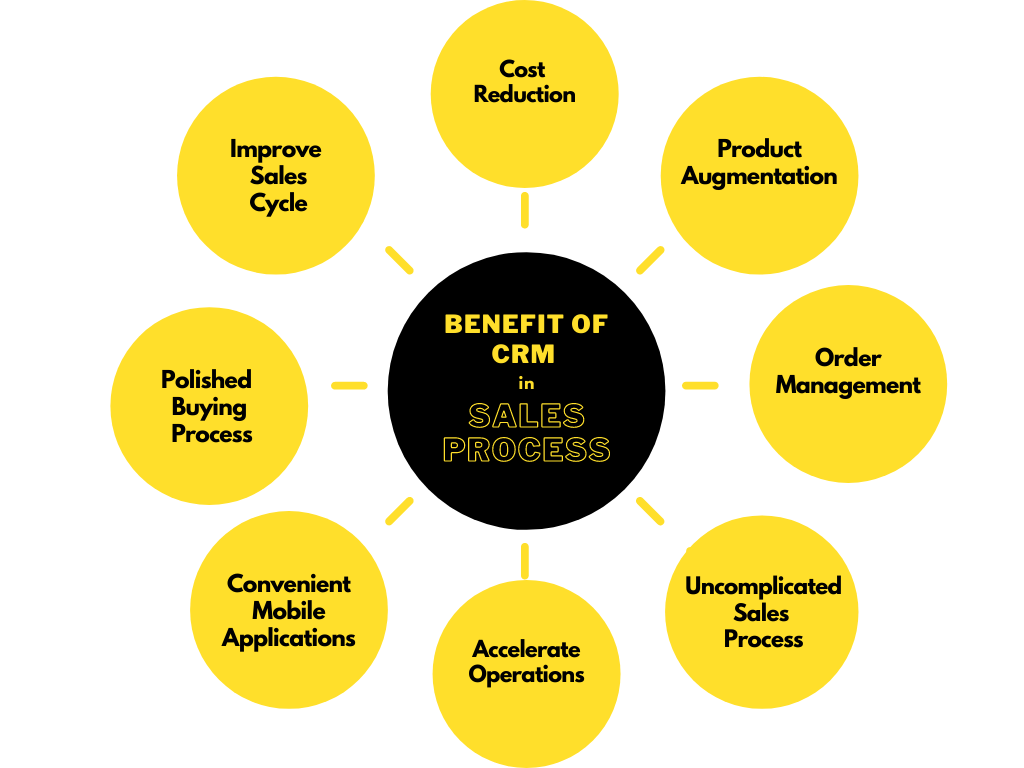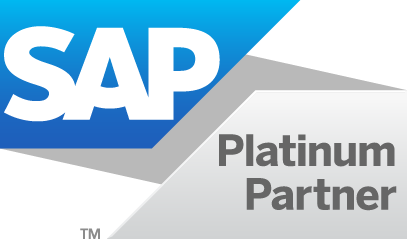CRM stands for Customer Relationship Management, which is a systemic software to integrate sales and marketing with customer service. SAP CRM is a part of the SAP business suite. SAP Sales Cloud enables businesses to produce user-friendly CRM solutions that can vary according to different aspects of sales to marketing and service.
The platform becomes powerful by utilizing the speed and power of SAP HANA, In-Memory Database. The CRM can be personalized for a mobile version compatible with apple and android applications. Moreover, the CRM can be entirely reconcilable with all the enterprise offerings of SAP.
Business Limitation without CRM
CRM is beneficial for businesses to focus on excellent customer service with automating sales and marketing processes. However, businesses face a lot of drawbacks without implementing CRM in their processes.
Some limitations a business will have to encounter are as follows:
- Constricted Data Management
The business will have to manually store and access all kinds of sales data. This is a greater threat for the salesforce to understand and interpret performance and targets. - Losing track of Opportunities
Manual handling of data will decline quick response to customer requests. Thereby delaying client query resolutions. As a result, organizations will not be able to analyze the reasons behind the declining trend of sales and performance. - Perforated Customer Service
Without incorporating CRM, a business may end up in an incorrect pricing decision and improper establishment of unique selling propositions (USP) for the respective products and services.
Benefits of CRM in the Sales Processes
CRM is the core builder behind automation and well-informed business organizations. It enhances data analytics and reporting of sales data to forecast sales – estimating what your business’s sales are going to be in the future contributes to business growth. Thus, SAP Cloud Analytics is a business intelligence (BI) platform that helps organizations to analyze past performances as well as future endeavours as well.
The advantages of implementing CRM into businesses are:

1. Improvement of Sales Cycle
The four elements of the sales cycle – lead inquiry, discovery, evaluation, and close. All the inquiries from the lead seamlessly routed from the marketing to the sales department. It produces a birds-eye view for discovering customer perspectives for product evaluation and personalizing offers for a closed automated process.
2. Polished Buying Process
With the acceleration of the sales cycle, businesses can adequately manage all the prospective customer data. CRM provides various in-built tools for an effortless buying process. Moreover, the query resolution time diminishes allowing the businesses to deliver excellence in customer services.
3. Convenient Mobile Applications
CRM can be conveniently transformed into mobile versions, which are accurate, seamless and fully featured. The mobile applications can be used to manage all the sales activities and concurrent salesforce performances. Furthermore, the user-friendliness and personalization of mobile layouts can be adapted for the CRM functionalities.
4. Accelerate Operations
SAP CRM can boost your sales cycle by automating simple tasks like sales data entry and customer data gathering. The sales data can be tracked in real-time so that a salesperson can effectively search for product prices to share quotations and manage order-to-cash information.
5. Uncomplicated Sales Processes
The sales funnel can be elaborately maintained with the advent of CRM as manages to automate all the complex business processes and accelerate their productivity. Various features of CRM can help in building valuable customer relationships with engaging posts and e-mails. CRM is a valuable contributor to the process of client integration.
6. Order Management
CRM helps the salesforce in managing orders and distribution channels. Many valuable tools of CRM are useful for sharing product portfolios with the clients with their respective pricing details, real-time tracking for the orders, and their delivery management.
7. Product Augmentation
An efficient CRM can gather a wide variety of information across verticals and horizontals. This provides valuable insights on customer behaviour and feedback across the growth phase of the product life cycle. Businesses can significantly improve what they are offering and detect the drawbacks and try to bridge the gap between their offerings and consumer needs.
8. Cost Reduction
It is quick and easy to implement CRM to reduce the cost of software development. This cloud-based or on-premise storage of data by CRM does not include special installations and does not involve high investments. It also keeps lowering the subsequent IT costs with the removal of version control and avoid regularly scheduled updates. This cost-effective solution believes in enhancing capital outlay and makes the entire data handling and storage process flexible.
3 Categories of CRM for Sales
CRM is a powerful tool used by businesses to effectively manage all their prospects and clients. It improves their customer experience. However, there are three basic types of CRM that a business needs to select according to sales requirements:
1. Operational CRM
An operational CRM helps businesses to streamline their verticals and horizontals. They help brands in lead generation and then prioritizing leads to different stages of the sales funnel. It analyzes past performances and suggests training and development of the salesforce. Operational CRM is used to automate all the sales and marketing activities, data analysis, market research and operational management. Also, they help in providing valuable insights and detailed reports for marketing research by comparing lead flow, sales generated and the paramount effect of marketing campaigns in these activities.
2. Analytical CRM
A business such as a multinational company handles a huge amount of customer data as well as employee data. Mostly, they use analytical CRM for handling all these data. This type of CRM is efficient in handling customer preferences, purchasing history, contact details and geolocations. CRM can help in suggesting content that can be relatable for the clients. Analytical CRM can also help in warehousing data, online analytical processing and data mining. It provides various types of reports that help evaluate multidimensional data from multiple perspectives.
3. Collaborative CRM
Collaborative CRM helps in data integration from all business verticals and processes. It helps to improve customer experience with different aspects of channel and interaction management. The interaction management ensures all the client communications are maintained. While the channel management ensures the business drive enough feedback and insights to improve the communication channels.
20 Ways CRM Can Help your Company’s Salesforce
The advanced technology of CRM helps in managing customer relationships diligently. The streamlining of different business processes helps the salesforce to be in touch with prospective clients and improve profitability to a large extent. Furthermore, the CRM tool is versatile and can be adapted by different aspects of businesses, such as sales and marketing, customer service, business development and recruitment process. Besides that, CRM utilizes recorded services issues and proper marketing campaigns focused on customers to enhance customer engagement.
1. Bottom Line Improvement
The implementation of CRM has been significantly favourable for the improvement of the sales funnel starting from the bottom line. CRM has enhanced customer satisfaction through the prerequisite of lead conversion rates and sales productivity. Now, Businesses can analyze huge customer data with CRM. Therefore, the revenue generation capacity of businesses can be improved.
2. Manage Customer Data
CRM can successfully manage a large amount of customer data and information. A salesperson will be able to view the purchasing history and sales orders of clients during query resolution. This customer data is also useful for predicting the target consumer base to close valuable deals and maintain customer relationships.
3. Lead Generation
CRM can identify prospects and categorize different leads to priority according to their interests and opinion. After that, it is easier for salesforce to understand the importance of different customers and rate their preferences for filtering prospects out of the huge pool of customer data. The perspective leads are well-nurtured and primed with the entire focus of developing a large customer base.
4. Determination of Target Audience
Sales and marketing personnel can easily track the client data and deduce different reports based on the customer’s buying journey. So, the businesses can analyze customer buying behaviour to interpret the inclination towards the unique selling points. When a group of customers’ needs are met by the products and they can relate to the unique selling proposition of the products, that group becomes the target audience for an organization.
5. Tracking Customer Visits
CRM integrates with various third-party applications that help determine the geolocation of the customers. In this manner, businesses can track customer check-ins, visits, and itineraries. With the support of CRM and its unique feature, business organizations can manage the entire lifecycle of prospective leads with their opportunities. CRM can easily capture prospective clients and track the entire customer journey.
6. Customer Lifecycle Management
CRM can be integrated into the business process to improve customer service. Improved customer service is based on proper management of customer lifecycle by sorting out different opportunities and prospective clients from the leads. These prospects are then well-managed and prioritize by the salesforce for giving equal weightage to all the clients to ensure a high level of customer experience. Therefore, the end-to-end customer journey can be managed by CRM and its tools.
7. Tracking of Customer Requests
CRM not only helps the salesforce to manage client data but also helps the client to raise and access their request. Additionally, CRM can evaluate lead samples for complaint management and helps the customer managers to range their queries into different categories for a quick resolution. Hence, it helps to resolve queries and accept feedback regarding products and services.
8. Customer Interaction
The interactions and communications between prospects and businesses can be recorded and analyzed with different third party authenticated software, such as Outlook, Gmail, and Lotus Notes integration. Customer engagement increases brand value and helps the client to trust their brands. Besides that, they develop the perception of being connected and valued by the brand.
9. Sales Referrals
When a business provides a seamless and excellent customer experience, the customer is satisfied and becomes part of the loyal fanbase. The loyal customer base spreads word-of-mouth and involves in buzz marketing to promote their favourite brands or organization. In this manner, these loyal customers generate more customers for the company by denominating the brand value. Thus, the business gets more client referrals and more consumers participate in repeat purchases.
10. Sales Analytics
CRM enables the salesforce to access various real-time reports with key insights features of CRM delivering at their fingertips. CRM can analyze the data to fetch different detailed reports by customizing different purposes and areas of interest of the target audience. These valuable insights help businesses to augment their products and services to delay the declining phase of the product life cycle. It helps the organization to improve its offerings concerning customer feedback and staying relevant in the marketplace.
11. Sales Pipeline
The technological advancements and business reforms are powerful for incorporating clarity in building a sales pipeline. A sales pipeline consists of different levels of prospective leads aligned in order of importance. CRM helps the salesforce to effectively prioritize and organize the sales leads. As a result, salesforce gets an advantage in developing potential sales pipelines by pitching to the right prospects.
12. Historical Data Analysis
CRM stores all the information in the cloud with infinity storage facilities, helping organizations to manage, store, access and restrict data usage and visibility. The ERP solution ensures the inflow of data from various business processes to collaborate into the CRM dashboard, which in turn supports the sales personnel to effectively close deals.
13. Sales Forecast
The higher authorities and management of companies can visualize the past sales data and effectively predict future sales. This technique of predicting sales data is known as sales forecasting. CRM dashboard provides a clear view of different product lifecycles with sales achieved. Thereby it helps businesses to predict future sales strategies and marketing campaigns concerning sales forecasting figures.
14. Visibility in Sales Target
Sales targets are given to the assigned salesforce every month based on sales forecasting and previous order history. With the overview from the dashboard of the CRM, you can see and analyze the sales target. So, CRM can provide full clarity and visibility of various sales commission numbers which eventually motivates the sales team in enhancing their performance.
15. Convenient Access to Sales Data
CRM has an easy and customizable dashboard for handling all the sales data and subsequent performances of the salesforce. The managing authorities of any business can easily access these data. Hence, they can take the necessary actions to improve the performance of the salesforce.
16. Selling Made Easy
CRM has the ability to provide the salesforce with one-touch access to all the salesforce data along with information needed for conducting the sales processes efficiently. Through this easy and convenient mobile application of CRM, the sales personnel can manage the client data at their fingertips. Plus, they will be able to sell products and services at any point in time.

17. Improvise Sales Techniques
Business gets the chance to improve their sales techniques and tools with accessing customer data. The user-friendly access to CRM helps the sales personnel to understand the mindset and psychology of their target audience. So, they can successfully implement various cross-selling and upselling of their products and services. These cross-selling techniques are based on product recommendations based on purchasing history of the respective clients. Followed by that, the sales personnel can implement various selling techniques to suggest these product recommendations for upselling. Thus, it provides businesses with a chance to generate more selling opportunities from the existing customer base.
18. Decision-making on Sales
Businesses can store and manage all the previous sales figures in the CRM. This application of ERP can provide various reports and studies of the data that supports businesses to gain useful insights about their customer base such as areas of interest, buying preference, purchasing history, featured products, and so on. All these data are useful in decision making regarding future sales prediction and producing effective marketing campaigns.
19. Eliminates Petty Tasks
The innovative features of CRM simplify most of the petty tasks needed for data management, producing product portfolios, elaborating sales and target achievement ratio. In addition, it creates a sales funnel by categorizing potential clients as per priority and importance. The sales tools are unravelled and paraphrased for the ease of accelerating sales performance. With these simplifications, the salesforce has more time to concentrate on selling products and services.
20. Better Customer Support
In the generation where there is cut-throat competition, brands are trying to incorporate more features to provide high-quality service that the customers are looking forward to. The salesforce can have a detailed arena about the product portfolio to suggest their clients and excel in customer support. Therefore, they can rapidly access the purchase history of a client with an entire order summary that helps in quick query resolution.














